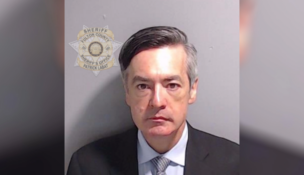ON THE DEFENSIVE: Big Brother is listening
By: Anthony Cotton//April 23, 2013//

Congress hatched the idea of fusion centers in the aftermath of the Sept.11, 2011, terrorist attacks.
Federal money would go to local police departments to create the centers in large metropolitan areas. Those who worked at the centers would collect data and other information on suspected terrorists and suspected terrorist groups.
The idea was implemented in short order, but fusion centers have had little regulation and oversight. Because of that, their activities largely have gone unnoticed.
Last month, however, the Milwaukee Police Department’s Intelligence Fusion Center was in the news, and its activities are concerning.
Milwaukee is not a prime target for al-Qaida or other international terrorist organizations. Consequently, there is little in the way of terrorist activity to attract the MPD fusion center’s attention.
The center largely is opaque, and only select members of the department have access to it. Those who do, spend their time monitoring the citizens of Milwaukee, not suspected terrorists.
Surveillance is a traditional police tactic. But in the past, surveillance only took place when there was reasonable suspicion to believe crime was afoot.
Today’s world is much different.
The fusion center has begun placing microphones throughout the city of Milwaukee. Those microphones are ultrasensitive. When a shot is fired, a car backfires or a door slams, the microphones detect that sound and route it to the fusion center.
The microphones are so sensitive that they can pick up ordinary conversations between people talking in public.
Rapid advances in technology are threatening the fabric of the Fourth Amendment. Law enforcement can follow cars with GPS devices and track suspects through their cellphones. Police departments are buying drones that could be used to maintain permanent eyes in the sky.
If microphones are being installed throughout Milwaukee, it only will be a matter of time before cameras become ubiquitous.
The courts are the only real check on this obvious danger, an erosion of privacy under constant and perpetual government surveillance. Now more than ever, courts must tightly restrict the expanding tools that law enforcement seeks to embrace.
Judges would be wise to heed Benjamin Franklin’s warning that those who sacrifice liberty for security deserve neither.
Legal News
- FBI launches criminal investigation into Key Bridge collapse
- Man charged in slaying after woman’s leg found at Milwaukee-area park
- Minnesota man guilty in fatal stabbing of teen on Wisconsin river, jury finds
- Wisconsin teen sentenced in bonfire explosion that burned at least 17
- Wisconsin man who broke into home, ate victim’s chicken, slept in victim’s bed, receives prison and jail sentences
- Judge refuses to dismiss Hunter Biden’s gun case
- House passes reauthorization of key US surveillance program after days of upheaval over changes
- Milwaukee Police officer traveling to Georgia training retires before facing discipline
- Evers to ask legislature to approve largest increase in state support for UW System in two decades
- 7th Circuit Court of Appeals proposes new rules
- Federal agencies allege toxic work environment for women in new report
- Wisconsin man sentenced for sex trafficking a woman and a minor online
WLJ People
- Power 30 Personal Injury Attorneys – Russell Nicolet
- Power 30 Personal Injury Attorneys – Benjamin Nicolet
- Power 30 Personal Injury Attorneys – Dustin T. Woehl
- Power 30 Personal Injury Attorneys – Katherine Metzger
- Power 30 Personal Injury Attorneys – Joseph Ryan
- Power 30 Personal Injury Attorneys – James M. Ryan
- Power 30 Personal Injury Attorneys – Dana Wachs
- Power 30 Personal Injury Attorneys – Mark L. Thomsen
- Power 30 Personal Injury Attorneys – Matthew Lein
- Power 30 Personal Injury Attorneys – Jeffrey A. Pitman
- Power 30 Personal Injury Attorneys – William Pemberton
- Power 30 Personal Injury Attorneys – Howard S. Sicula











